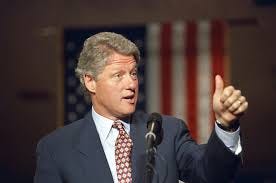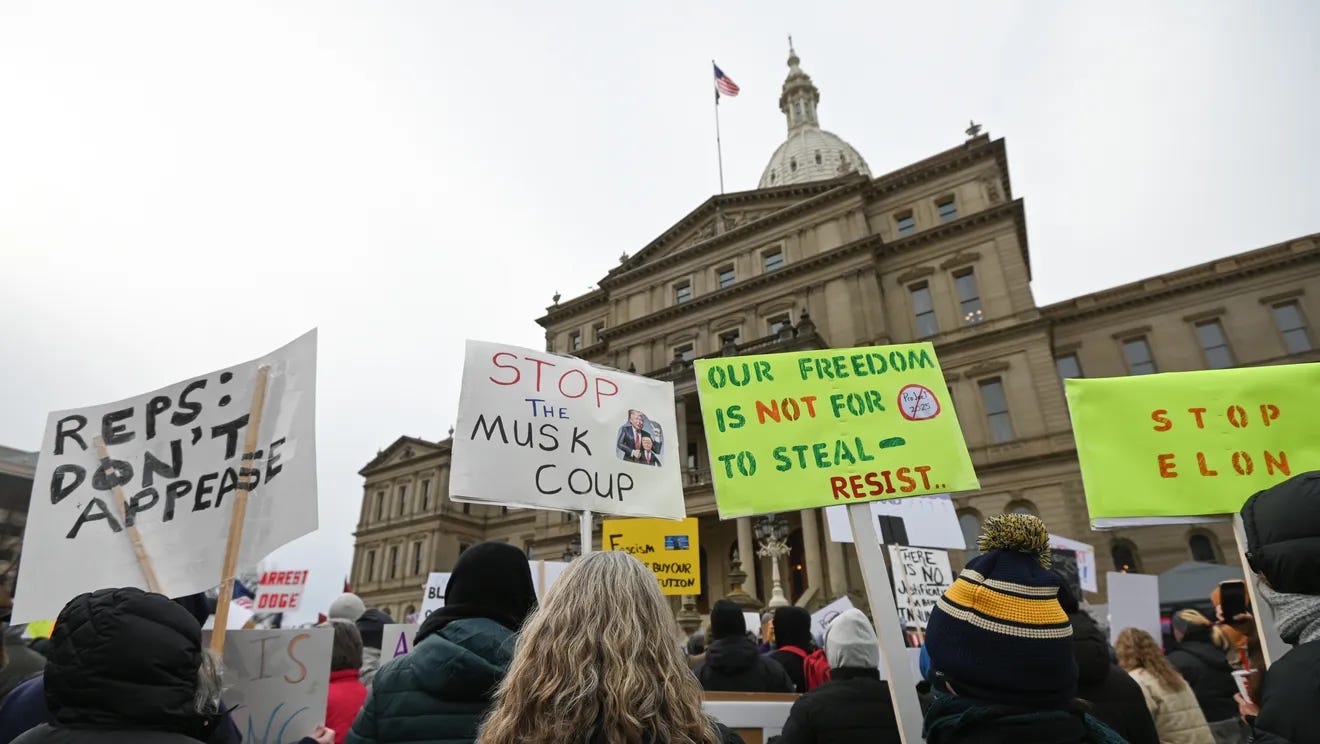Weaponizing Empathy
A lost political skill found in the lyrics of a Willie Nelson-Bob Dylan song. Also: Thoughts on Arab American voters, Trump protests, and trans athletes.
Convulsions is a reader-supported newsletter for and about you — “A witness to change in an age of acrimony” reading essays on politics, communications, culture, and life. First-level subscriptions are free. If you value the written word and want greater access plus twice the content, level up to a paid subscription: $5/month or $50/year. Or be a Concierge Member for $500. Click the orange button for Paid and Concierge benefits.
Read about me and my return to writing here.
In the early 1990s, as Bill Clinton was riding “I-feel-your-pain” empathy to the White House, Bob Dylan walked into a music studio with Willie Nelson and started noodling a melody. He didn’t have lyrics for it.
As poets do, Nelson and Dylan quickly found the words together and called their masterpiece “Heartland,” a song about heartbreak and unrequited love — the heartbreak of American farmers and a nation that had fallen out of love with them.
There's a big achin' hole in my chest now where my heart was
And a hole in the sky where God used to be
There's a home place under fire tonight in the heartland
There's a well where the water's so bitter nobody can drink
Ain't no way to get high and my mouth is so dry that I can't speak
Don't they know that I'm dyin'/why's nobody cryin' for me
Thirty-two years after its March 1993 release, “Heartland” stands for more than the plight of American farmers. As Clinton advisor Paul Begala explains in a newly released “One By Willie” podcast, “Heartland” is a testimony to the modern Democratic Party’s arrogance and indifference toward all of rural America.
“Democrats need to stop hating on those people and judging them harshly and looking askance at them,” Begala said after a 2024 election in which Democrats lost rural America by 25 percentage points, up from six points in 2000.
I’ll take it a step farther: “Heartland” today is a cry for a value missing in both major parties: Empathy. Here’s my message for political leaders who still care enough about our country to radically change how they campaign and govern:
It’s time once again to weaponize empathy.

“Nobody’s crying for me” — that line in “Heartbreak” reminded Begala of Elie Weisel, the Nobel Prize-winning Holocaust survivor who said the opposite of love isn’t hate. It’s indifference. Democrats’ indifference to rural America is immoral, Begala suggested, and politically toxic.
“Feeling their pain. Giving a damn. That’s the beginning,” he told host John Spong of Texas Monthly. “In more recent time, we’re losing 100,000 people a year to opioids,” Begala continued, “and they’re disproportionately poor. They’re disproportionately working class. Disproportionately rural. And, you know I just … think ain’t nobody crying for them.”
There's a home place under fire tonight in a heartland
And bankers are taking the homes and the land away
There's a young boy closin' his eyes tonight in a heartland
Who will wake up a man with some land and a loan he can't pay
His American dream fell apart at the seams
Begala credits his former boss Bill Clinton with a natural empathy that connected him a generation ago to voters who, like voters today, didn’t feel like they were being heard or respected. “He does look up to people who everybody else looks down on,” Begala said.
If empathy was his superpower, Clinton’s kryptonite was grievance. Wallowing in hate for Republicans during his 1998 sex scandal, Clinton had to be reminded of the power of forgiveness by South African leader Nelson Mandela. Begala quoted Mandela as saying, “Bill, you have to turn lose of this hate because all it is doing is poisoning you. It’s like drinking poison and thinking it’s hurting your enemy.”
Begala likes to say, “the soul of morality is empathy.” That is true. But so is this: The heart of politics is empathy.
Even if Donald Trump proves critics like me wrong and fares well in is second term, he will never be a Rushmore-worthy president without checking his narcissism and reframing his politics around empathy. There’s no reason to think he can do that.
Even if Democrats leverage Americans’ tendency to vote for change and narrowly defeat Republicans in 2026 and 2028, they will not completely eradicate MAGA-sim unless they can check their arrogance and reframe their politics around empathy. I don’t know that Democratic elite in Washington have it in them.
Empathy may be a lost cause in American politics.
You tell me what it means you tell me what it means
My American dream...
In Other Empathy News …
I’d like to share three empathy-related stories featured early today in “Morning Read-In,” a daily feature for paid subscribers where I curate the most interesting stories on politics, culture, communications, and life — with micro-essays of insight.
Empathy for Arab American Voters
My Arab American friends in metro Detroit were forced by the Dem-GOP duopoly to make a Sophie's Choice: Vote for the incumbent who was sending Israel bombs to drop on their family and friends in Gaza, or vote for the ex-incumbent with a Muslim ban in his pocket.
Many chose the ban over bombs. Now we're all living with the consequences. While I personally made a different choice, I am not going to blame or mock them for theirs.
The Democratic Party should have given Arab Americans an option better than, "Yes, we're arming a war against your people, but we're not Trump. Now, shut up.”
That was, as proven by the election results, a loser’s message.
Empathy for trans
Trans athletes in American schools are rare. We’re talking handfuls, fewer perhaps than you need to fill up a school bus. And yet the MAGA-GOP party has managed to make the issue a politically powerful one. Why?
Because solving a problem that doesn’t exist is the easiest thing to do in politics.
Feeling Never Trumpers’ Pain
“Take us to the rally, Ron.” Eight years ago, after the first Donald Trump victory, my wife, my sister, and one of my daughters asked me to take them to an anti-Trump political rally in Lansing, Mich.
It was their awakening. None of these important women in my life had ever cared much about politics. It was my job. Not theirs, not even a hobby. But now they were alarmed at what Trump might do as president, and they became a part of a MAGA resistance that energized the next two election cycles.
Seeing photos of yesterday’s anti-Trump rally in Lansing made me wonder: Is this the start of a new resistance?





I woke this morning reflecting on your heartfelt column, Empathy in the Heartland, and how profoundly it speaks to the role of empathy in our deeply divided political landscape. More than just a guiding principle, empathy should be the very foundation of our moral compass—the force that allows us to truly see one another, to listen with an open heart, and to build bridges where walls now stand.
In politics, as in life, this is no easy path. The road toward greater understanding is long, often frustrating, and at times seems impossible. But every small step toward kindness, every moment of genuine connection, brings us closer to a world where we don’t just tolerate our differences—we embrace them. We may never fully arrive at that destination, but the journey itself is worth every effort.
Thank you, Ron. While we may sometimes find ourselves on different sides of the fulcrum, there is always common ground to be found.
I’m not sympathetic towards the Arab American voters. By voting uncommitted they had a strong message, elect Donald Trump. With his ideas on Gaza we see how much of a conversation the Administration was willing to have after being sworn in, zero.
Could the Dems have done better? Yes, but what are your suggestions?
The current government in Israel isn’t going to change and US voters seem fine with that. I’m not, but to condemn the actions of the Israeli government is too risky because you’ll be damned as Anti-Semitic even if you’re not religious.